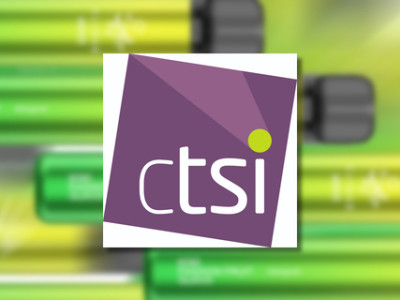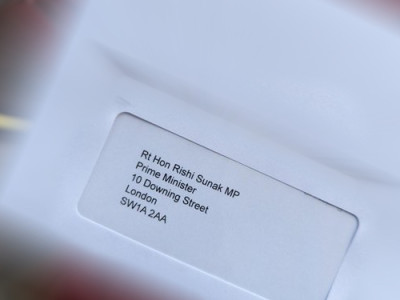Most outlets reported how the Government pledged to take “further steps” to tackle illicit vaping by teens. With the nation descending towards American levels of overblown hysteria, the facts gathered from independent scientific research and interested party reports are not being used to counter the calls to do something.
Last Tuesday, ministers announced that the ‘free trial vapes for kids’ loophole was being closed. No consumer or trade organisation argued for it to remain open - consumer organisations such as the New Nicotine Alliance were calling for it to be legislated out of existence years ago – but it has fed a narrative that the vape sector is luring teens into nicotine addiction by handing out freebies.
The only reported instances of this ever happening was with tobacco companies handing out sample kits to adult smokers and ending up in some teen fingers by mistake. The size of this problem was and is minute.
Research has shown that children access vapes from friends or corner shops who don’t check for ID. Invariably, these same corner shops are the same ones selling black market products containing too much nicotine and/or too much e-liquid.
The issue is the lack of enforcement by Trading Standards due to chronic underfunding over the last ten years. Over this period, local authorities core funding from Government has dropped by almost £16 billion.
At the same time, the scale of the problem is being overplayed as the likes of the BBC keep returning to Baxter College in Kidderminster for anecdotes rather than the annual reports produced by ASH and Cancer Research UK.
“NHS figures for 2021 show that 9% of 11- to 15-year-old children used e-cigarettes, up from 6% in 2018,” says The Guardian – but the latest ASH report shows this as experimental not regular use and that the number of teens vaping has remained constant – not grown – over the last 12 months. On top of this, ASH states that the majority of those teens who vape are or used to be smokers.
“Campaigners and doctors have also urged the government to urgently toughen rules around the advertising and packaging of vapes, which target children with bright colours, fruity flavours and cheap disposable options,” continues the newspaper.
Nobody is explaining how curtailing packaging, flavours or advertising the facts about vaping to smokers is going to impact teenagers who are already sourcing illegal products from vendors happy to break the law.
Rishi Sunak told journalists that he is “deeply concerned” about the claimed “sharp rise in children vaping”.
He added that the, “marketing and the illegal sales of vapes to children is completely unacceptable and I will do everything in my power to end this practice for good.”
It seems increasingly unlikely that vapes will emerge from the summer unscathed. The Government closed its call for evidence on Tuesday and the likelihood is that it will act process and proceed at a far greater pace than it did with the Khan Review (which required it to spend money).
It will point to “Scots vape crusader Laura Young”, heralded in the Daily Record, who “urged world leaders to crack down on disposable e-cigs amid global plastic pollution talks in Paris.”
It will point to ASH’s call to load £5 onto the current price of disposable vapes.
It will act to be seen to take action because it believes the public’s opinion counts for more than scientific evidence – as long as it doesn’t cost money.
Will it ban flavours or disposables altogether?
Justin Guest, co-founder of Archipelago Eco, says such an approach won’t solve the environmental problem.
“It doesn’t solve the problem because it’s not just vapes,” he said, “there are batteries in so many things now. People will always get stuff and throw it away. There will be some other consumer craze that comes along, and these materials will always find their way into the waste stream. So, you need safeguards, and you need technology to solve that problem.”
Manufacturers should have acted more responsibly – they didn’t.
Rishi Sunak should have distanced himself from such measures – he hasn’t.
Let’s hope adult vapers and smokers aren’t the ones to pay the price.
Dave Cross
Journalist at POTVDave is a freelance writer; with articles on music, motorbikes, football, pop-science, vaping and tobacco harm reduction in Sounds, Melody Maker, UBG, AWoL, Bike, When Saturday Comes, Vape News Magazine, and syndicated across the Johnston Press group. He was published in an anthology of “Greatest Football Writing”, but still believes this was a mistake. Dave contributes sketches to comedy shows and used to co-host a radio sketch show. He’s worked with numerous vape companies to develop content for their websites.
Join the discussion
Trading Standards Welcomes Clarity
The Chartered Trading Standards Institute says it welcomes the “clarity and action from government to tackle youth vaping” with the plan to ban disposable vapes and related announcements
UKVIA Writes To Sunak
The UKVIA has sent a letter to Prime Minister Rishi Sunak to 'express profound dismay and disappointment' that the government has decided to proceed with a ban on disposable vapes
FOI Shows Disposables Ban Folly
389 Freedom of Information requests made by leading online retailer Vape Club and one by the BBC demonstrate the extent to which a ban on disposable vapes is a complete act of folly
ASH UK’s Coordinated Comment
Action on Smoking and Health has coordinated a series of responses to the Governments proposals to include interested parties












